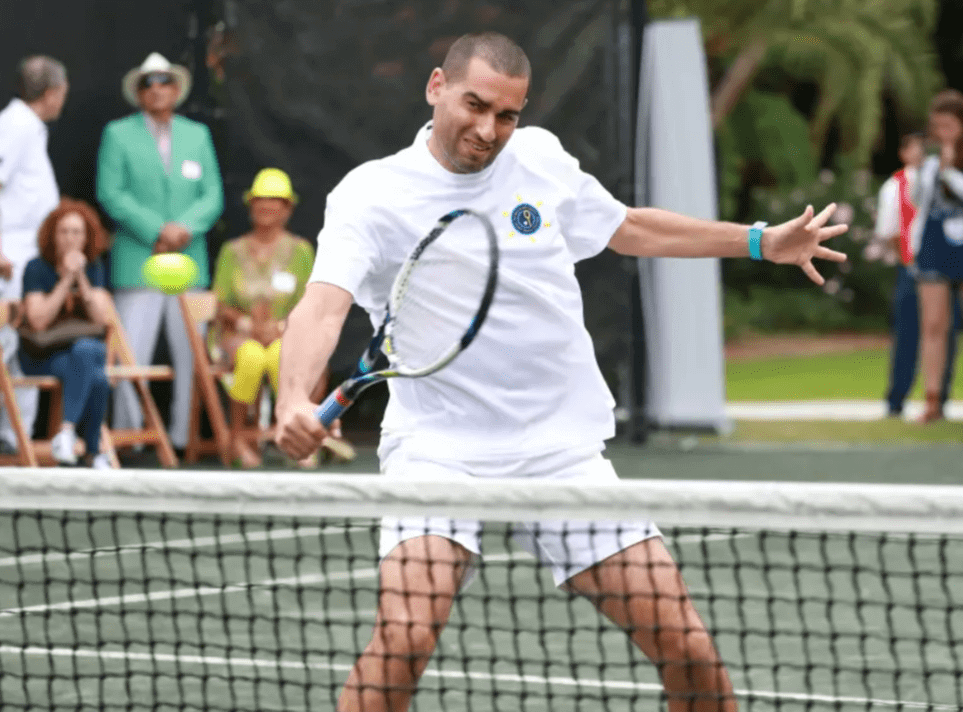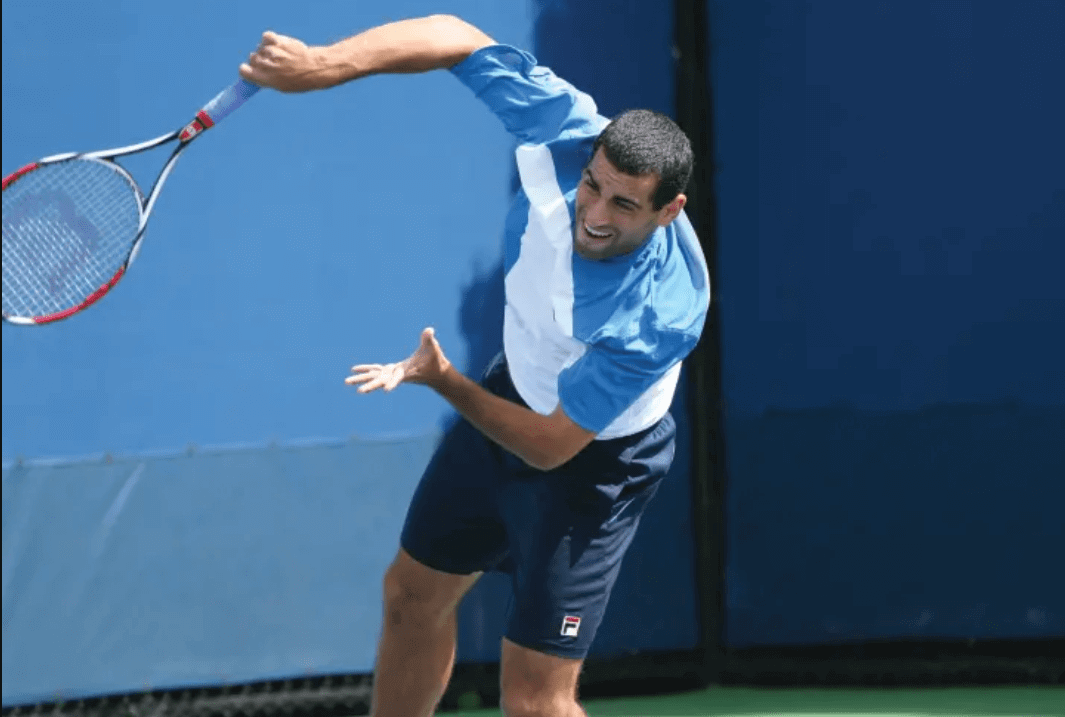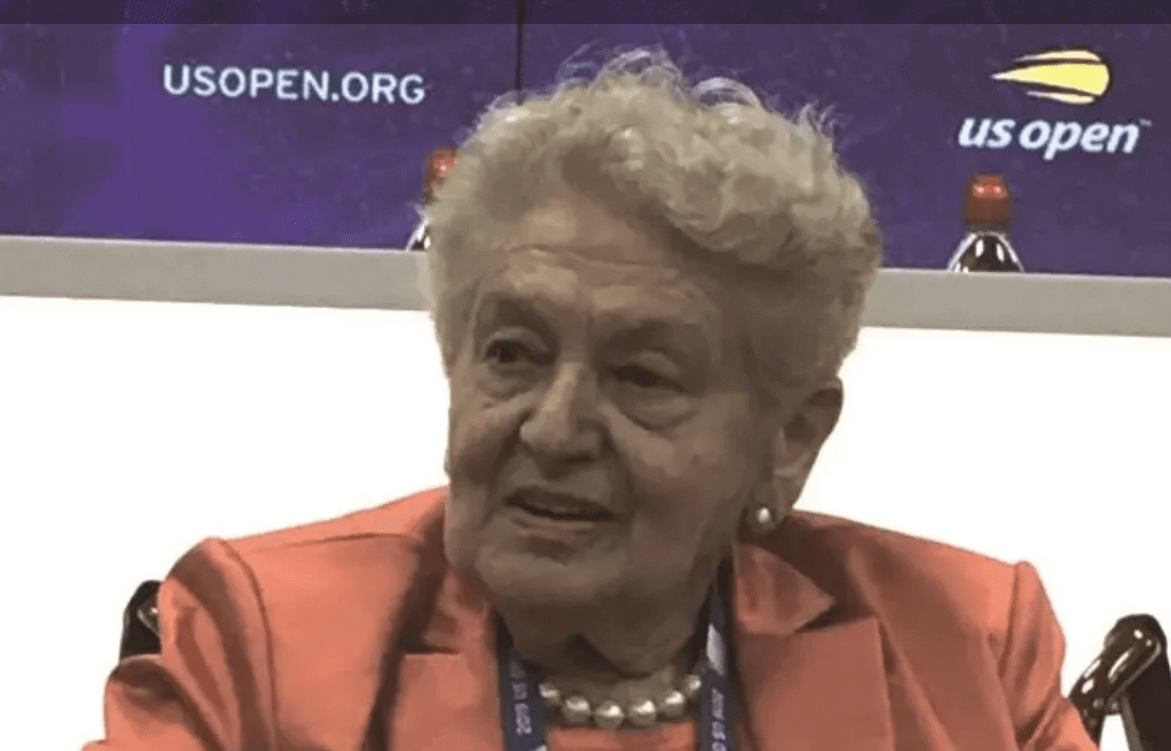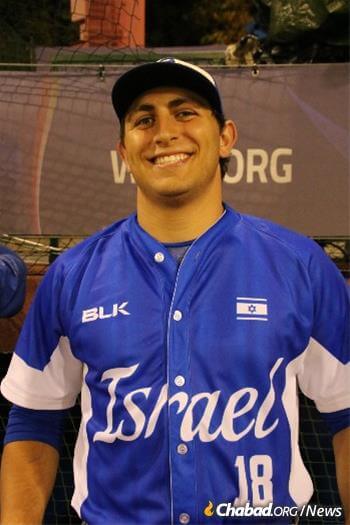Original Article Published On The Jerusalem Post
“I didn’t think about how I was making history as the first Israeli athlete to play in Dubai.”
When Israeli tennis legend Andy Ram learned in August that Israelis will soon be able to fly directly to the United Arab Emirates, he was shocked and pleased and had a déjà-vu moment.
Ram’s illustrious doubles career, mostly with fellow Israel tennis player Jonathan “Yoni” Ehrlich, included three Grand Slam championships, multiple opportunities to represent Israel at the Olympics and the Davis Cup, and some exciting and harrowing behind-the-scenes dealings with the then-unfriendly Arab nation. The Association of Tennis Professionals (ATP, the leading international men’s tennis organization) once paid Ram to not play tennis in Dubai, then one year later reversed course and exerted pressure to grant permission for Ram to play there.
Ram, who retired from professional tennis six years ago, reflected on his tennis career, current projects and Dubai experiences during a recent Zoom “Lunch and Learn” session for 70 people with the Israel Tennis and Education Center (ITEC).
Ram’s tennis career began when he wasn’t allowed to play soccer. Ram’s Israeli father was injured and endured three surgeries during his years playing professional soccer for Beitar Jerusalem. His father then went to Uruguay on shlichut (as an emissary), where he met Andy’s mother.
“Because of his soccer injuries, he didn’t allow me to play soccer.”
The Ram family moved back to Israel when Ram was five. At that young age, he started playing tennis at the Israel Tennis Centers in Jerusalem and was hooked immediately.
“I was jealous of the kids who were playing tennis at (the main center in) Ramat Hasharon.” Ram moved to Ramat Hasharon and to the Wingate Institute at age 14 for more intensive training.
Ram turned pro in 1996 at the age of 16 and began practicing regularly with future doubles partner Yoni Erlich. The two actually first met when Ram was 10.
“I was three years younger. I had a dream to play with Yoni and I asked him to play together in the juniors.” The two did not compete in a Grand Slam tournament until 2001, when they played doubles at Wimbledon.
Ram has spent most of his career playing both men’s doubles and mixed doubles. In 2003, Ram and Erlich entered the prestigious Wimbledon tournament through the qualifiers and reached the semifinals. That same year, Ram and Anastasia Rodionova of Russia reached the mixed doubles finals, losing to Martina Navratilova and Leander Paes.
RAM CONTINUED to experience success in both men’s doubles and mixed doubles throughout the 2000s. In 2003, Ram and Erlich won both the Thailand Open and a tournament in Lyon, France. Ram won the mixed doubles title with Vera Zvonareva at the 2006 Wimbledon Championships. He then won the mixed doubles title at the 2007 French Open with Nathalie Dechy, and the men’s doubles title at the 2008 Australian Open with Erlich.
Following Ram and Erlich’s Australian Open victory at the end of January 2008, the pair wanted to play in March’s Barclays Dubai Tennis Championship.
“There were lots of points and big money to be won there,” Ram tells the people on the ITEC webinar. “Under sports law, they must let all people play in this tournament, so we applied for a visa and we got tickets. The Dubai government didn’t let us go.” Ram then shared the shocking story of how the ATP “didn’t let us go. The ATP convinced us – after we got our tickets – not to go. They gave us $10,000, paid for our canceled tickets and suggested we play in the February Delray Beach International Tennis Championships. We said okay!”

Ram and the ATP took a very different approach in 2009 when the idea of playing in Dubai resurfaced. “Yoni was injured, and I needed to earn and defend points. I told the ATP with two months’ notice that I have the right to go.”
In February of the same year, Israeli tennis player Shahar Pe’er was denied a visa by the UAE for the Dubai Tennis Championship. The Women’s Tennis Association (WTA), the main organizing body of women’s professional tennis, fined Dubai Tennis Championships organizers a record $300,000. US tennis star Andy Roddick said at the time that he wouldn’t defend the title he won there in 2008.
According to Ram, “The ATP said, ‘If there is no visa for Andy Ram, we will cancel the tournament.’ Dubai said they would give me a visa.”
This is where Ram’s circuitous, wild Dubai adventure begins.
“There were no flights. And the Mossad called. I don’t know how they knew I was planning to go! They are the Mossad. They said, ‘We know you want to go. You can’t!’”
Ram and the Zoom audience laughed.
“I flew to Paris. I was at the counter three hours before the flight. The lady said, ‘You can’t go.’ Seconds before the flight was to take off, they let me on the flight. I thought they [would all want] to kill me – so I started to speak Spanish! When we landed, I became like the prime minister. Some 15 people took me off the flight and took my bags. We stayed at a bulletproof hotel. We were the only ones there; all of the other players stayed in a different hotel. They blocked off the whole floor and I had 24/7 bodyguards, and I had to use the name Mr. Smith. Later, I realized my hotel was only two minutes from the tennis center; they had driven me around and around for two hours to get there!
“And when we went to a restaurant with 60 people, 50 people left with me! They were all part of our entourage. At my matches, there was one court just for me. Only 100 people were allowed to watch, and no phones. The name ‘Ram’ appeared but no country.”
The Zoom audience was mesmerized, clearly hearing this story for the first time.
“When I look back, this was the most important thing I have done in my career. It was a statement about what I was fighting for!”
RAM’S PERSEVERANCE in 2008 and 2009 seems to have paid off. Israeli tennis players and other athletes will presumably have no trouble traveling to Dubai from now on. In the recent deal, Israel and the UAE agreed to exchange ambassadors, enhance commercial ties here, enable medical tourism with Sheba Medical Center, create security relationships and much more. They will also allow direct flights between the two countries – something Ram would have enjoyed. The UAE will become only the third Arab country to have diplomatic relations with Israel.
Ram is still making sense of the news and its implications.
“When I was playing tennis, I didn’t think about it. I didn’t think about how I was making history as the first Israeli athlete to play in Dubai. Now, to see the skies open to Dubai is unbelievable. I never thought it would happen!”
As the always-gregarious Ram looks back on his 30-year career, he reports nostalgically, “What I got from tennis, I can’t describe in words. Everything I have in life is through the Israel Tennis Centers. I met my wife through tennis at age 10, had my first kiss at age 16, and now have three kids! What I received from tennis, you can’t get from other sports.”
Ram continues to be loved and respected throughout Israel and the tennis world. Kevin Green, ITEC international chair, reports, “We are so proud of Andy and what he has accomplished in his career; from representing Israel in his Davis Cup victories, to winning major titles at Wimbledon, the French Open and the Australian Open. Beyond his professional accomplishments, Andy’s work ethic, humility and warmth make him an inspiration to all of us. He sets a shining example that when you have a dream, work hard and focus, anything is possible. He is an international treasure and a celebrated global ITEC ambassador.”
Erez Vider, global CEO of ITEC, adds, “Andy Ram is a legend for tennis in Israel and for the ITEC’s children since he won three Grand Slams in tennis. He is a living example that everything is possible. Dreams can come true if one has the will and will get a fair chance. Anyone can become a winner in tennis and in life through our programs.”
Despite his status as a tennis legend, Ram is much like any Israeli parent these days – dealing with the uncertainly of school starting up and finding ways to keep his children occupied in the age of COVID-19. Andy, wife Shiri, and children ages 11, 9 and 5 live in north Tel Aviv. Ram is enjoying the extra time he gets to spend with his family.
“We make the best out if out – the same as it was when I was on the court – trying to look on the good side of things.”

DESPITE PLANNING to not work in tennis after his retirement, Ram has found his way back. In 2015, Ram became CEO of Pulse Play, a wearable tennis technology app startup. (He reports he closed the company about one year ago.) And he started a foundation within the Israel Tennis Centers in memory of his father “to help kids with their dreams of becoming pros.”
Ram has become passionate about helping young Israelis reach the top levels in professional tennis. And he has the reputation, personality and finesse to bring together the Israel Tennis Centers, the Israel Tennis Association and other key players to achieve this goal.
“I really believe that in a few more years, we will see the next Dudi (Sela) and Shahar (Pe’er). This is the reason I started it.” He points to Mika Buchnik, 13, and Israeli Bedouin Karin al-Touri, 14, as two female players he sees on track to achieve tennis greatness.
In addition to his efforts to produce the next Israeli Roger Federer or Serena Williams, he teaches classes at Ono Academic College, his alma mater, and gives motivational speeches and presents workshops for Israeli companies.
While Ram played his last US Open in 2013, he still stays abreast of news of the Grand Slam event, which took place August 31 to September 13 in New York – with no fans present.
“It is such an operation. It is one of the biggest sports events in the world, next to the Olympics. It is two weeks and big money. It will be interesting to see how they get back and manage to pull it off; the rest of the sports world will follow. I am really looking forward!”






